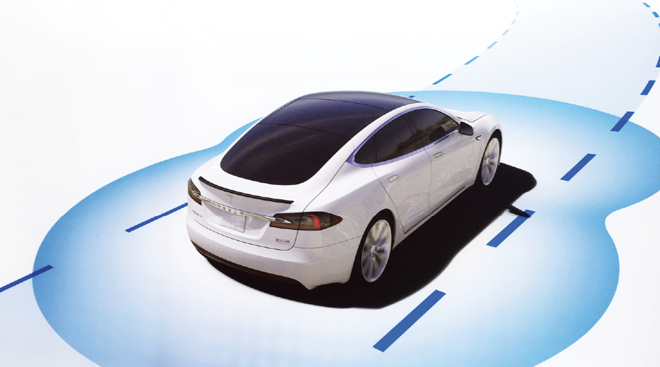Tesla has been weathering a lot of criticism in the press since the fatal crash involving an Autopilot-equipped Model S. As Road & Track’s Jack Baruth very colorfully noted, some of it has come from self-appointed experts with little knowledge of the auto industry. However, the latest reproach comes from Consumer Reports, a respected publication that famously gave Model S a rating of 99 out of 100 (but later raised doubts about its reliability).
In an article titled Tesla’s Autopilot: Too Much Autonomy Too Soon, CR says that the tragic accident “has caused safety advocates to question whether the name Autopilot, as well as the marketing hype of its roll-out, promoted a dangerously premature assumption that the Model S was capable of truly driving on its own.”
“By marketing their feature as ‘Autopilot,’ Tesla gives consumers a false sense of security,” says Consumer Reports VP Laura MacCleery. “In the long run, advanced active safety technologies in vehicles could make our roads safer. But today, we’re deeply concerned that consumers are being sold a pile of promises about unproven technology. ‘Autopilot’ can’t actually drive the car, yet it allows consumers to have their hands off the steering wheel for minutes at a time. Tesla should disable automatic steering in its cars until it updates the program to verify that the driver’s hands are on the wheel.”
Of course, Tesla has said that the system does make frequent checks to ensure that the driver’s hands remain on the wheel. However, CR says, “Our recent testing on a Model X in Autopilot mode on a long, straight road found that the system took more than three minutes after our tester’s hands were removed from the wheel before the vehicle gave any warning.”
Tesla responded to the Consumer Reports article thus: “Tesla is constantly introducing enhancements, proven over millions of miles of internal testing, to ensure that drivers supported by Autopilot remain safer than those operating without assistance. We will continue to develop, validate, and release those enhancements as the technology grows. While we appreciate well-meaning advice from any individual or group, we make our decisions on the basis of real-world data, not speculation by media.”
Source: Consumer Reports



















































































